Regional council committee requests report on leaf blower pollution
Coun. Sam Austin says many cities are restricting gas-powered blowers
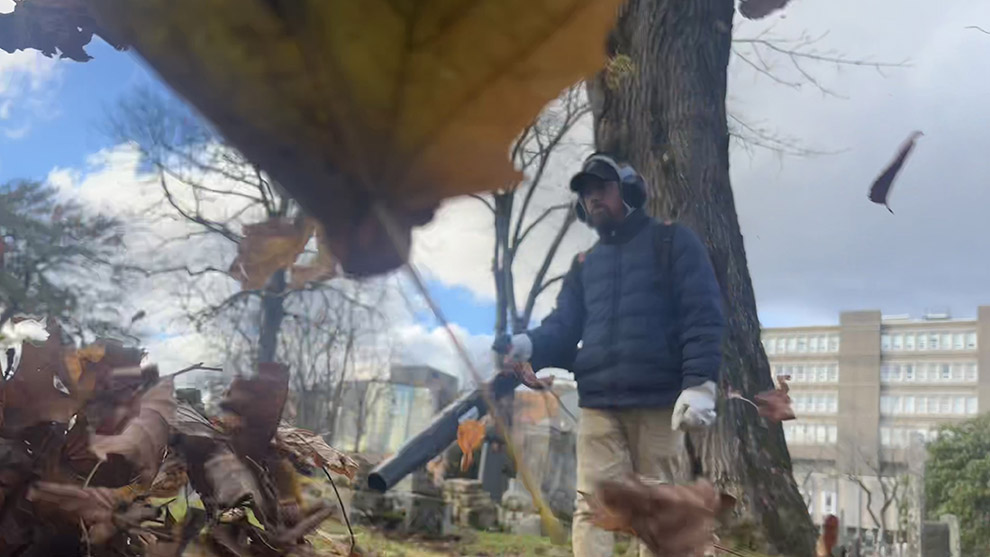
caption
A municipality crew member cleans up leaves in a local cemeteryHalifax is joining the growing number of cities weighing the pros and cons of gas-powered leaf blowers.
On Thursday, regional council’s environmental and sustainability committee directed municipal staff to look into restricting or banning the use of this garden equipment.
Committee member Coun. Sam Austin requested the staff report.
“Every few months, someone will write, asking, ‘Are you guys doing anything about leaf blowers?’, and I spent some time looking into this issue. A lot of cities are actually looking into this,” said Austin during the meeting.
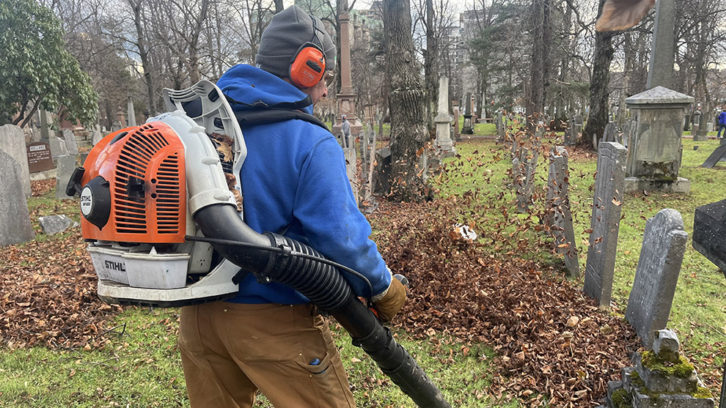
caption
A service crew member uses a leaf blower in a city cemetery on Thursday to gather leaves for easier pickup.Austin said it could be difficult to impose these restrictions on landscaping companies. “I have no idea if the technology is there yet to really run a commercial operation on electric,” said Austin.
Coun. Tony Mancini said he is concerned about enforcing new rules.
“Are we grandfathering in those that already own them, are we grandfathering in those for commercial landscapers? If this were to be approved, I would assume we are not sending out the leaf blower police to confiscate people’s leaf blowers,” he said.
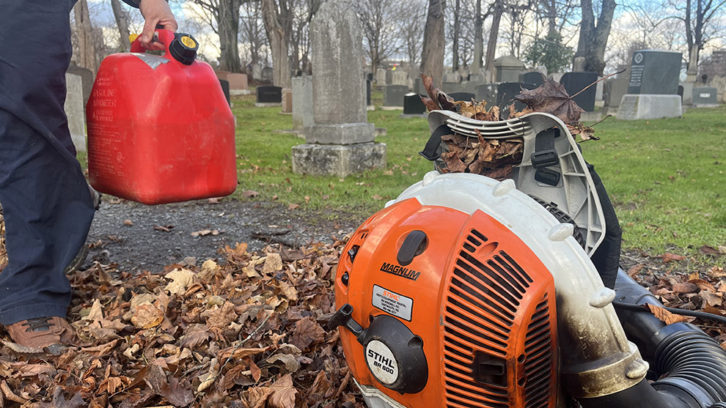
caption
Gasoline-powered leaf blowers require topups during a busy work day.Coun. Kathryn Morse said she would like to see the use of leaf blowers restricted in certain locations.
“Another impact of these leaf blowers is the fumes, and the impact on health for people. Some people are very sensitive to gas fumes,” she said.
Morse said because of air quality issues, the use of leaf blowers should be limited near schools or dense urban areas.
During the committee meeting, Austin said fuel and noise pollution produced by leaf blowers were the main concern in other municipal discussions. Ottawa, Toronto, Vancouver, and Victoria have begun to limit the use of leaf blowers.
Among the measures proposed in other cities are established time-periods for leaf blower operation, restrictions to specific communities and neighbourhoods, or phasing out gas-powered garden tools for electric alternatives.
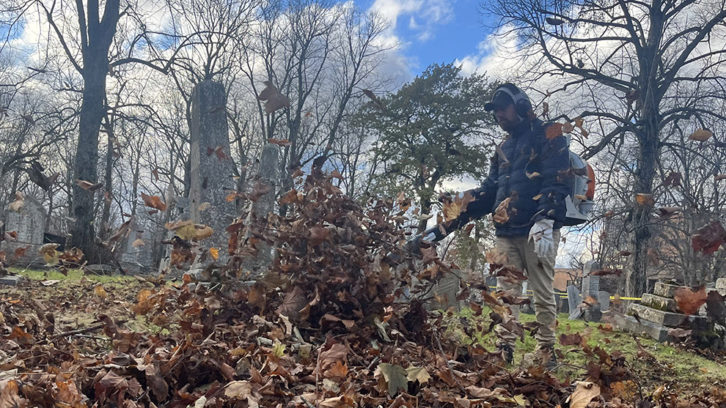
caption
One leaf blower does the job of 10 workers with rakes, said one municipal worker this week.But Austin also said the legal aspects of restricting gas-powered leaf blowers might be difficult to implement.
“My own hunch is, probably from a noise bylaw we would be on very solid grounds to restrict, but on the actual environmental piece, which is a good chunk of the movement towards restricting these, that might be a little bit more tenuous in terms of what charter powers we have.”
Daniel Rainham of the Healthy Populations Institute at Dalhousie, which studies sustainable development, said, “Small time garden tools are low-hanging fruit when considering urban pollution. Their impact is relatively low and their bylaws are difficult to implement.”
Vancouver’s west end banned leaf blowers in 2004. It was the first Canadian neighbourhood to ban the use of leaf blowers outright. However, the CBC reported in October 2021 that service crews were still using leaf-blowers despite the ban being implemented nearly 20 years earlier.
According to Rainham, there has been an improvement in air quality in the last 30-40 years, due mostly to cleaner combustion methods. He said that although garden equipment is inefficient, and restrictions would ultimately benefit public health, they make up a small fraction of the pollution in the HRM.
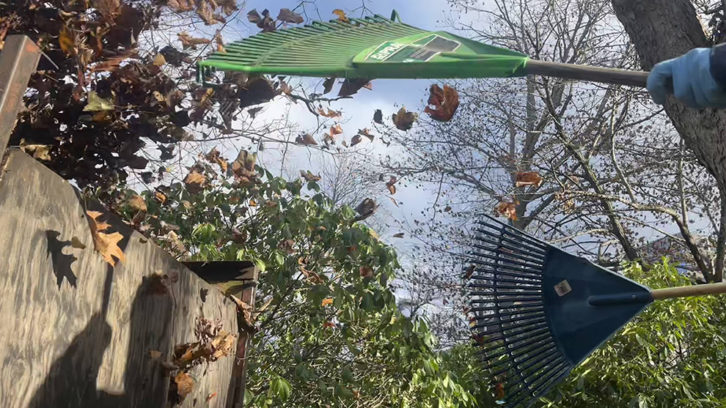
caption
A Halifax Public Gardens worker uses another approach for leaf cleanup.Rainham said some of the largest contributors to urban pollution in HRM are transportation emissions produced by daily commuters, the shipping industry, and heavy chemical waste.
He said we should look at ways to incentivize people to make positive changes.

